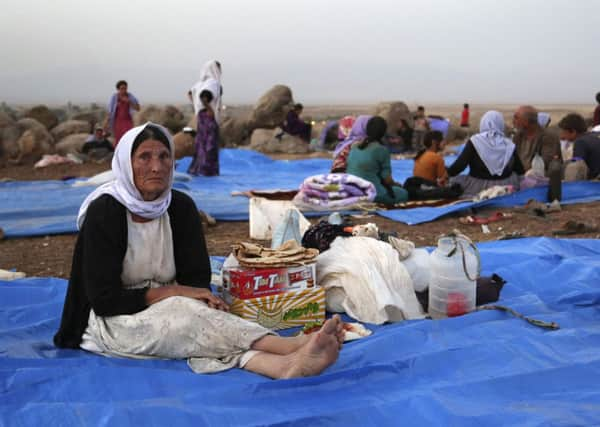Leaders: Iraq intervention | Robin Williams


While this is technically a humanitarian aid mission, no-one is making the mistake of assuming this operation is in any way routine.
This isn’t an aid drop into a zone struck by a natural disaster, such as an earthquake or a drought. The plight of the retreating Yazidi people is very much man-made.
Advertisement
Hide AdAdvertisement
Hide AdThe IS militia in pursuit have, in their advance, demonstrated their brutality in the most sickening ways. There have been reports of beheadings, crucifixions – the Yazidi are one of the most ancient Christian communities on Earth – and burying people alive.
The US air strikes against IS, and the UK aid operation that accompanies them, are aimed at saving thousands of lives that look in very real jeopardy.
Islamic State is an organisation regarded by the West as the most deadly and destabilising force in the region. Conversely, there are many in the region who will see any British or American involvement as a provocation. The Tornados will be fully armed, and flying into a war zone.
Given the political sensitivity of UK military involvement in the Middle East, it is curious that this is happening without a debate having taken place in the House of Commons.
It may be the summer recess, but military operations in a war zone are exactly the kind of circumstances that could justify a recall.
The last time Prime Minister David Cameron thought he knew the mind of the Commons on a sensitive matter in the Middle East – on support for the rebels in Syria – MPs swiftly disabused him of that notion.
That vote, perhaps the greatest foreign policy reversal for a prime minister in modern British political history, marks one of the lowest points in Mr Cameron’s premiership.
This is a tinderbox moment in Iraq, a country still a long way off from being a coherent and sustainable political entity.
Advertisement
Hide AdAdvertisement
Hide AdWar zones are, by their very nature, places where the unexpected happens. This is why “mission creep” is always a risk.
What would happen, for example, if British warplanes came under attack? Would they be justified in returning fire? What exactly are the rules of engagement? What would happen if a pilot was shot down and was captured? Do we know what we are getting into?
This demonstrates why it is wise for our political leaders to ensure they have the full backing of the country, through its democratic representatives, before they make a commitment in a conflict situation. Mr Cameron has, so far, not sought that endorsement. He should recall parliament, and soon.
Comic genius with a troubled mind
MANY of the factors that make for a great comic talent are no laughing matter. Often, comic genius has its roots in a troubled mind.
This was all too true in the life of Robin Williams, whose death prompted a great outpouring of sadness and regret across the world yesterday.
Film director Steven Spielberg paid tribute to “a lightning storm of comic genius”. President Barack Obama lauded a man who “arrived in our lives as an alien – but he ended up touching every element of the human spirit”.
That alien was Mork, in the TV series Mork & Mindy. This character was a motor-mouthed visitor from outer space who latched on to the absurdities of human life and behaved in a way that was, naturally, unworldly.
But this alien’s-eye outlook on life was never far from Williams’ own world view.
Advertisement
Hide AdAdvertisement
Hide AdThere were always signs that this was not a man for whom it all came easy. For Williams, “madcap” was never too far away from “manic”. And like so many great talents before him, he struggled for a long time with addiction to drink and drugs.
His pace was one of the keys to his success as a comedian, but it was when he became a serious actor and alternated this side of his character with a touching stillness and gentleness, that he found his metier.
It was this combination that won him his Oscar nominations in films such as Good Will Hunting and Dead Poets Society.
The 63-year-old actor had recently been battling depression. It was a battle that he was ultimately to lose. But he has left behind a legacy which, as President Obama said yesterday, is a celebration of the very best of the human spirit.